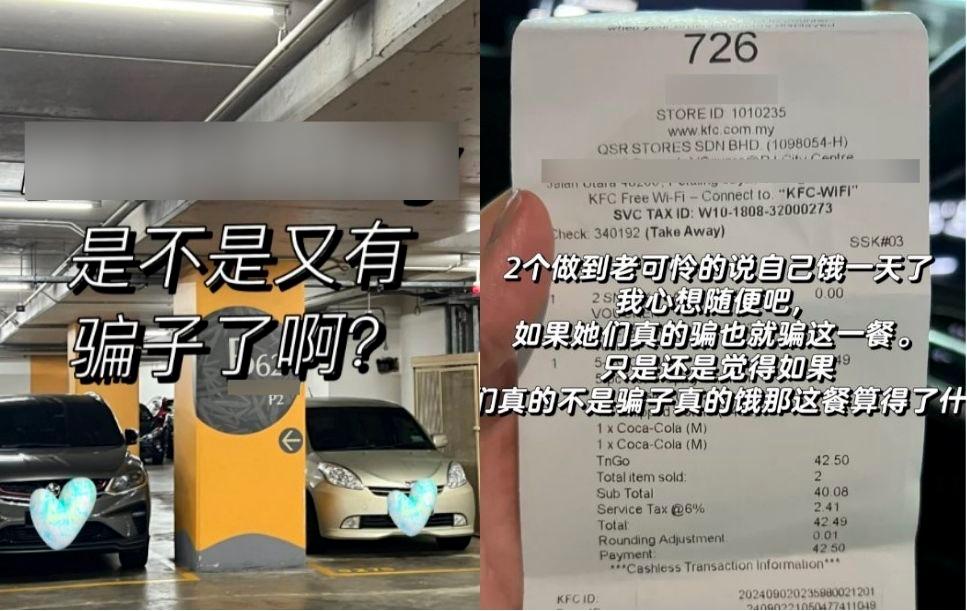SCAMMERS adopt a variety of tactics to get what they want from their victims and one of it is invoking sympathy by asking for help, often financially.
However, a woman did not fall for these tactics after crafting her own sob story to two individuals who tried to cheat her out of her money in a Kuala Lumpur shopping mall.
Initially, Wei Wong kept her distance from the two individuals who approached her as she suspected them to be fraudsters.
Wei alleged in her post on Xiaohongshu that the scammers were from China who “gambled too much” in Genting Highlands and “faced a (financial) limit due to government restrictions” - basically left penniless, so to speak.
The women claimed their friend from Singapore will be picking them up the following day then asked her if there is a 24-hour eatery to sit in while waiting for the friend and she informed them that there was no such restaurant in the vicinity and the only option was a fast food restaurant.
ALSO READ: ‘Charity scammers’ on the prowl
Wei then offered to call a ride to take them to a fast food restaurant.
“They pretended to be starving and said they did not have water to drink,” she alleged in the post.
Feeling sorry for them, Wei decided to get them some food first from another fast food place.
However, the duo had other plans and asked Wei to lend them some cash for their trip to the airport - promising to pay her back when their friend from Singapore arrived.
By then, the woman realised that there was an “80% chance” that these were scammers and decided to turn the tables back on them, spinning her own tale of woe.
ALSO READ: Penang public warned on false monks tugging at heartstrings – and purse
“They asked for cash, but I told them I only had RM2 and that I was trying to save money. I also mentioned being unemployed, from a single-parent (household) and in debt. I exaggerated my hardship,” Wei added.
Realising they were not getting a single cent out of Wei, the scammers relented, gave her back the fast food she offered during their interaction and left.
After the interaction, Wei, through online research, found that other people had similar experiences in the shopping mall.









